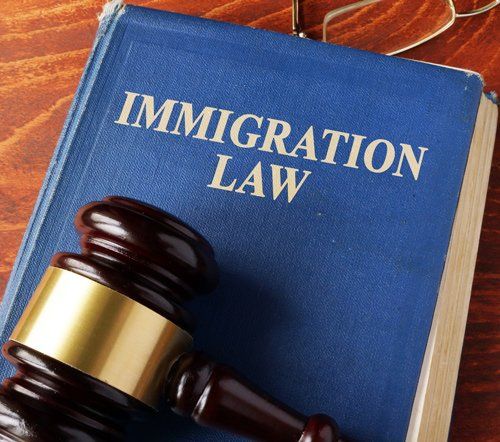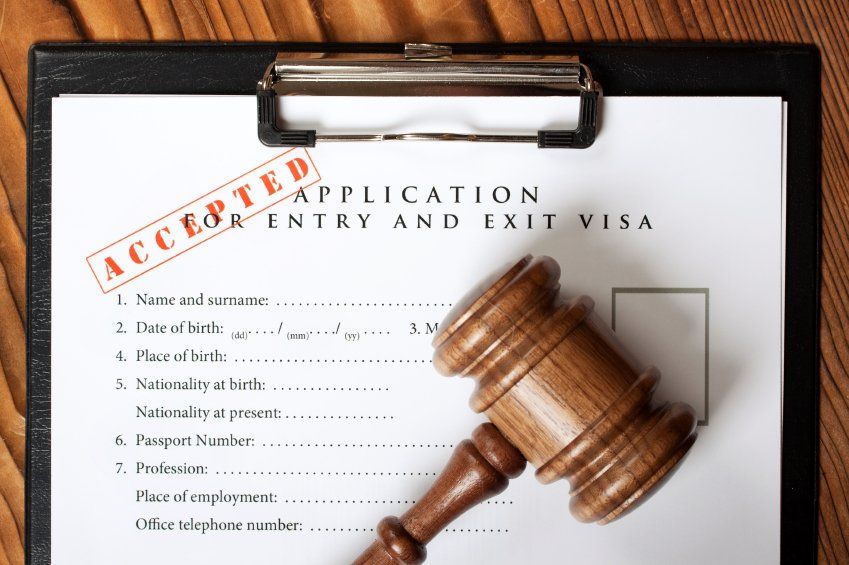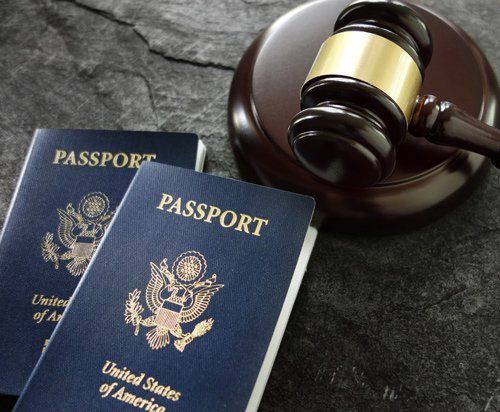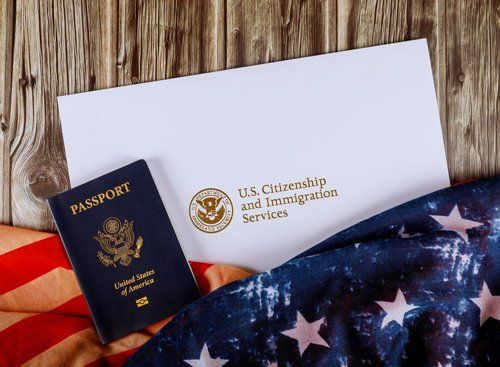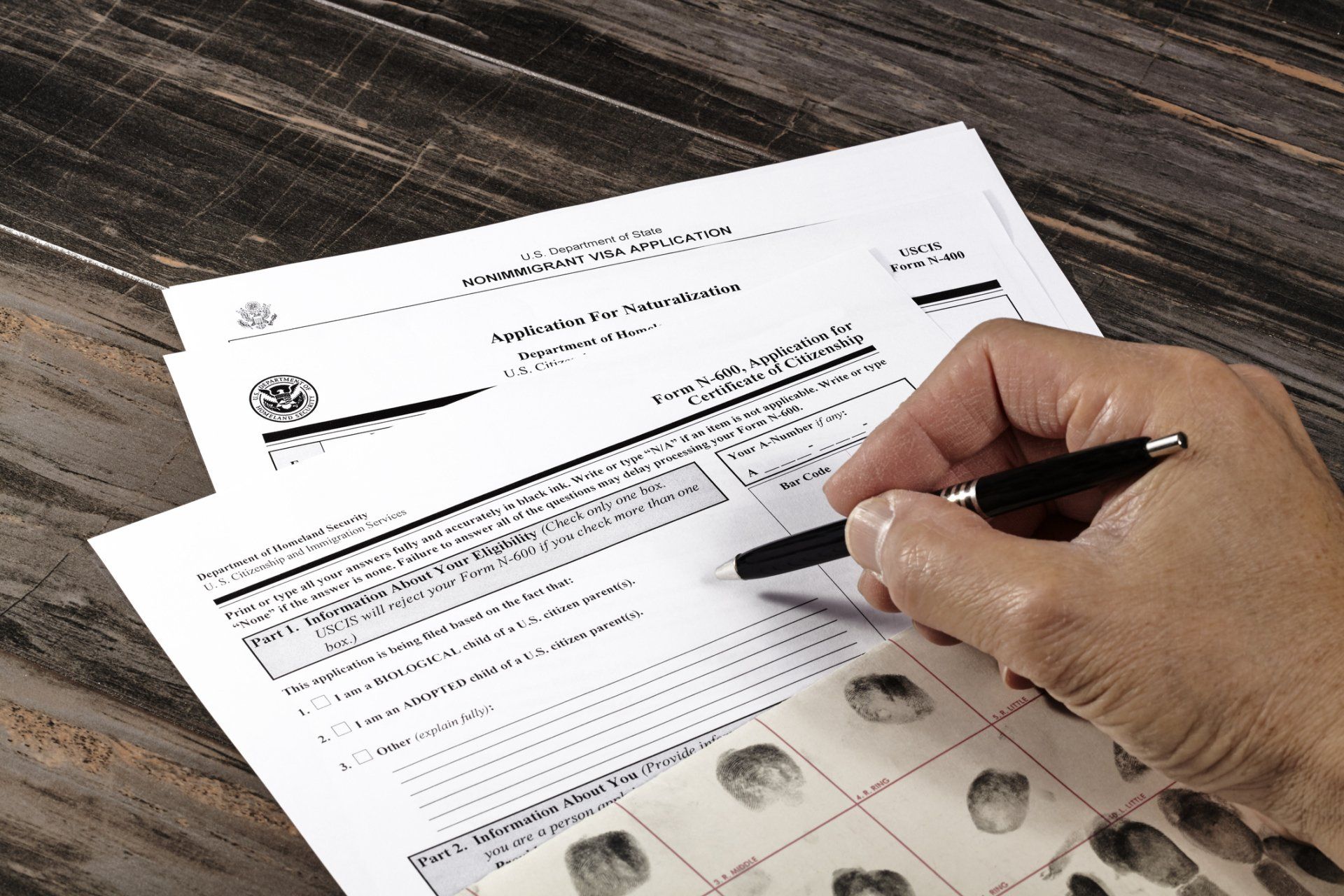U.S.
immigration law
is focused on keeping families together, protecting refugees, promoting diversity, and admitting immigrants with skills that are valuable to our economy. Sounds simple enough, right? In reality, immigration law is incredibly complex. Our website provides some basic information on the different areas of immigration law that we specialize in at One Law Group, S.C., but it is not meant to take the place of meeting with an experienced immigration attorney, one-on-one, to discuss your case. We look forward to hearing from you and helping you on the road to achieving The American Dream!
Contact One Law Group, S.C. at 866-525-5200 for a complimentary consultation.
Types of Immigration Cases
Family-Based Immigration
Family-based immigration involves at least 2 family members typically referred to as a petitioner and a beneficiary or beneficiaries. The petitioner must be a U.S. citizen or a legal permanent resident. The petitioner sponsors a foreign family member for a green card so that the foreign family member may live and work permanently in the United States. This process usually starts by filing a Petition for Alien Relative (I-130) or Petition for Alien Fiancé (I-129F) with the U.S. Citizenship and Immigration Service (USCIS).
A U.S. citizen can sponsor a fiancé, spouse, children, parents, and siblings. Legal permanent residents can sponsor spouses and children. If the foreign family member is already here in the U.S., they may be able to get their green card through a process known as “adjustment of status.” In other cases, the foreign family member will have to “consular process,” meaning they will be interviewed outside the U.S. at a U.S. Embassy or Consulate.
Family-based immigration applications are generally divided into two categories, immediate relative and family preference petitions. Immediate relatives are spouses, children, and parents of U.S. citizens. The number of immigrants admitted into the United States in the immediate relative category is not limited by year. Family preference categories include spouses and children of legal permanent residents and adult children and siblings of U.S. citizens. There are yearly limits on the number of immigrants in the family preference categories.
Citizenship and Naturalization
Naturalization is the process of becoming a U.S. citizen. To become a U.S. citizen, you must first be a legal permanent resident. You can apply to be a U.S. citizen after you have been a legal permanent resident for at least 5 years, you are at least 18 years old when you apply, you are able to read, write and speak basic English and you are a person of good moral character. The process involves filing an Application for Naturalization (N-400) with the U.S. Citizenship and Immigration Service (USCIS).
To show good moral character, the applicant should have a clean criminal record. The applicant must also show an understanding of the fundamentals of U.S. history and the form and principles of the U.S. government. The applicant will be required to take the U.S. naturalization test to show their understanding. Individuals applying for U.S. citizenship will also be asked to take an oath of allegiance to the United States.
There are some circumstances in which a legal permanent resident may be eligible to apply for citizenship after 3 years. There are also some limited exceptions to the English and naturalization test requirements based on the applicant’s age and length of legal residence in the United States. Applicants with criminal records may still be eligible to apply for naturalization depending on the nature and age of the conviction.
Citizenship can also be acquired through a parent who is a U.S. citizen. For example, children born outside the U.S. to at least one U.S. citizen parent may have acquired citizenship at birth. However, the U.S. citizen parent must meet certain residence requirements. The requirements also depend on what year the child was born and whether the child was born in or out of wedlock.
Citizenship can also be conveyed to children based on the naturalization of a parent if the child was a legal permanent resident, was under 18, was unmarried, and was living in the legal and physical custody of the parent at the time of naturalization. The process for obtaining proof of citizenship in this situation can be as simple as applying for a U.S. passport. In more complex cases, it will involve applying for a Certificate of Citizenship (N-600) from the United States Citizenship and Immigration Service and providing evidence.
Hardship Waivers
There are several “grounds of inadmissibility” written into the immigration laws in the U.S. These laws are designed to prevent certain individuals from obtaining legal status in the United States. You cannot legally enter the United States if you are inadmissible. If you are already here in the United States and found to be inadmissible, you may be forced to leave.
Some of the most common grounds of inadmissibility involve criminal convictions and previous immigration law violations. Many criminal convictions can result in an individual being found inadmissible. Many people are surprised to find out that even simple misdemeanors and multiple traffic violations can be grounds of inadmissibility. Other common grounds of inadmissibility include having lived unlawfully in the United States for more than 180 days or having entered the United States without being inspected and admitted.
The grounds of inadmissibility may bar an individual from being able to enter the United States for 3 years, 10 years, 20 years, and in the most serious cases, permanently. Individuals that are found to be inadmissible may be eligible to request a “waiver of inadmissibility,” also known as a “hardship waiver.” A hardship waiver requires proof that the individual’s spouse or parent, who must be a U.S. citizen or legal permanent resident, will suffer extreme hardship if the individual is barred from entering the United States.
Inadmissibility is one of the most complex areas of immigration law and involves some of the most serious consequences to an individual applying to live legally in the United States.
VAWA Petitions and U Visas
The laws in the U.S. provide victims of domestic violence with a path to legal permanent resident status. The violence can be either physical or emotional. VAWA, which stands for the Violence Against Women Act, allows an abused spouse or child of a U.S. citizen or lawful permanent resident, or an abused parent of a U.S. citizen, to self-petition for a green card in the United States.
Applicants can receive employment authorization and access to public benefits. This can help a victim of domestic violence find the means to be able to escape the violence and start a new life independent of their abuser. VAWA petitions are available to both men and women victims as well as victims of domestic violence in same-sex relationships.
Victims of certain crimes that have been helpful to law enforcement in investigating the crime or the prosecution in bringing the case to court can qualify for a U visa. A U-visa can lead to a green card. The U visa was created by the Victims of Trafficking and Violence Protection Act of 2000 to encourage noncitizen victims to come forward to report crimes without fear of immigration consequences. There is a limit on the number of U visas available each year, so those applying should be prepared to wait several years for approval.
Many circumstances could lead to a person being placed in deportation or removal proceedings. The most common reasons are criminal convictions, a referral from an asylum officer after an unsuccessful application for asylum, failure to maintain a nonimmigrant status, unlawful employment, and loss or abandonment of permanent resident status.
Proceedings start with the issuance of a Notice to Appear (NTA). The NTA will list the allegations and city the law under which the person is removable or deportable. The Immigration Court will conduct a Bond Hearing if the person has been detained by Immigration and Customs Enforcement (ICE). At the Bond Hearing, the Immigration Judge will determine whether the individual should be released on bond or must remain in immigration detention.
The next hearing is the Master Calendar Hearing. The person will need to inform the Immigration Judge if they are eligible for any relief from being removed. The role of an immigration attorney is to represent in the individual in immigration court. An experienced immigration attorney can determine if the immigrant facing deportation is eligible for relief from removal. If the immigrant is eligible and can prove they are eligible for relief, the person will not be removed from the United States. Common types of relief from removal include Cancellation of Removal, Withhold of Removal, Adjustment of Status, and Suspension of Deportation.
One Law Group, S.C. also represents individuals with DACA (Deferred Action for Childhood Arrivals) renewals, TPS (Temporary Protected Status) renewals, (PIP) (Parole in Place) applications for family members of active-duty members of the United States Armed Forces, Legal Permanent Resident Renewals and Petitions to Remove Conditions on Residence.

